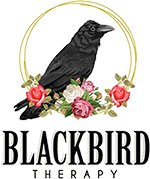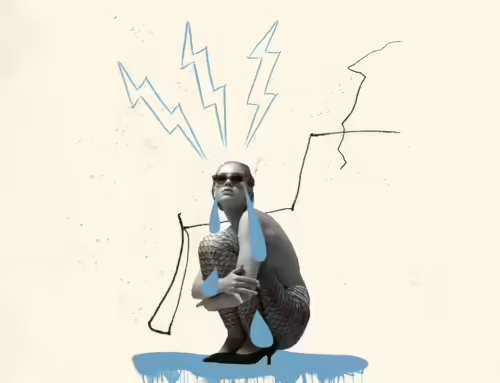Navigating the Final Journey: The Role and Benefits of an End-of-Life Doula for Those with Terminal Diagnoses
The journey towards the end of life can be an emotionally challenging and deeply personal experience for both the individual facing a terminal diagnosis and their loved ones. As a mental health therapist and INELDA trained end-of-life doula (or death doula), I offer compassionate support and guidance to help families navigate this complex terrain. In this blog post, we will explore the role and benefits of an end-of-life doula for those with a terminal diagnosis.
What is an End-of-Life Doula?
An end-of-life doula, also known as a death doula or death midwife, is a non-medical professional who offers emotional, spiritual, and practical support to individuals facing the end of life and their families. These doulas are trained by organizations such as INELDA (International End of Life Doula Association) to provide holistic and person-centered care that complements medical treatment and hospice services.
Key Responsibilities of an End-of-Life Doula:
- Emotional Support: An end-of-life doula offers a listening ear, empathy, and companionship to those facing a terminal diagnosis. They provide a safe space for individuals to express their fears, hopes, and feelings as they confront their mortality.
- Spiritual Support: Doulas can help clients explore their spiritual beliefs and create meaningful rituals or ceremonies to honor their journey.
- Practical Assistance: End-of-life doulas can help clients and their families with daily tasks, organizing paperwork, and creating an end-of-life plan that addresses medical, legal, and financial considerations.
- Advocacy and Coordination: Doulas work collaboratively with the client’s medical team, ensuring their wishes are respected and facilitating communication between all parties.
- Bereavement Support: After a client’s death, doulas can provide grief support to their loved ones, helping them process their loss and find ways to remember and honor the deceased.
Benefits of an End-of-Life Doula:
- Personalized Care: An end of life doula tailors their support to the unique needs and preferences of each client and their family, providing a customized approach to end-of-life care.
- Continuity of Care: By building a relationship with clients and their families throughout the end-of-life journey, doulas can provide consistent support and help maintain a sense of stability during a tumultuous time.
- Reduced Stress and Anxiety: The presence of a doula can alleviate stress and anxiety for both the person facing a terminal diagnosis and their loved ones, as they have a knowledgeable and compassionate resource to turn to for guidance.
- Enhanced Quality of Life: With a focus on emotional and spiritual well-being, end of life doulas can help clients find meaning and peace in their final days, promoting a more positive end-of-life experience.
- Empowerment: By working closely with clients to articulate their wishes and create an end-of-life plan, doulas empower them to maintain a sense of control and autonomy as they face the end of their life.
When a loved one has a terminal diagnosis, the support of an end of life doula can be an invaluable resource for both the individual and their family. These trained professionals offer a holistic and compassionate approach to end-of-life care, helping to ease the emotional and practical challenges that arise during this difficult time. By providing emotional, spiritual, and practical support, end of life doulas can help clients and their loved ones experience more peace. I know this can feel unbearable. If you or your loved one is facing an end of life diagnosis, please reach out.
Navigating the Final Journey: The Role and Benefits of an End-of-Life Doula for Those with Terminal Diagnoses
The journey towards the end of life can be an emotionally challenging and deeply personal experience for both the individual facing a terminal diagnosis and their loved ones. As a mental health therapist and INELDA trained end-of-life doula (or death doula), I offer compassionate support and guidance to help families navigate this complex terrain. In this blog post, we will explore the role and benefits of an end-of-life doula for those with a terminal diagnosis.
What is an End-of-Life Doula?
An end-of-life doula, also known as a death doula or death midwife, is a non-medical professional who offers emotional, spiritual, and practical support to individuals facing the end of life and their families. These doulas are trained by organizations such as INELDA (International End of Life Doula Association) to provide holistic and person-centered care that complements medical treatment and hospice services.
Key Responsibilities of an End-of-Life Doula:
- Emotional Support: An end-of-life doula offers a listening ear, empathy, and companionship to those facing a terminal diagnosis. They provide a safe space for individuals to express their fears, hopes, and feelings as they confront their mortality.
- Spiritual Support: Doulas can help clients explore their spiritual beliefs and create meaningful rituals or ceremonies to honor their journey.
- Practical Assistance: End-of-life doulas can help clients and their families with daily tasks, organizing paperwork, and creating an end-of-life plan that addresses medical, legal, and financial considerations.
- Advocacy and Coordination: Doulas work collaboratively with the client’s medical team, ensuring their wishes are respected and facilitating communication between all parties.
- Bereavement Support: After a client’s death, doulas can provide grief support to their loved ones, helping them process their loss and find ways to remember and honor the deceased.
Benefits of an End-of-Life Doula:
- Personalized Care: An end of life doula tailors their support to the unique needs and preferences of each client and their family, providing a customized approach to end-of-life care.
- Continuity of Care: By building a relationship with clients and their families throughout the end-of-life journey, doulas can provide consistent support and help maintain a sense of stability during a tumultuous time.
- Reduced Stress and Anxiety: The presence of a doula can alleviate stress and anxiety for both the person facing a terminal diagnosis and their loved ones, as they have a knowledgeable and compassionate resource to turn to for guidance.
- Enhanced Quality of Life: With a focus on emotional and spiritual well-being, end of life doulas can help clients find meaning and peace in their final days, promoting a more positive end-of-life experience.
- Empowerment: By working closely with clients to articulate their wishes and create an end-of-life plan, doulas empower them to maintain a sense of control and autonomy as they face the end of their life.
When a loved one has a terminal diagnosis, the support of an end of life doula can be an invaluable resource for both the individual and their family. These trained professionals offer a holistic and compassionate approach to end-of-life care, helping to ease the emotional and practical challenges that arise during this difficult time. By providing emotional, spiritual, and practical support, end of life doulas can help clients and their loved ones experience more peace. I know this can feel unbearable. If you or your loved one is facing an end of life diagnosis, please reach out.




